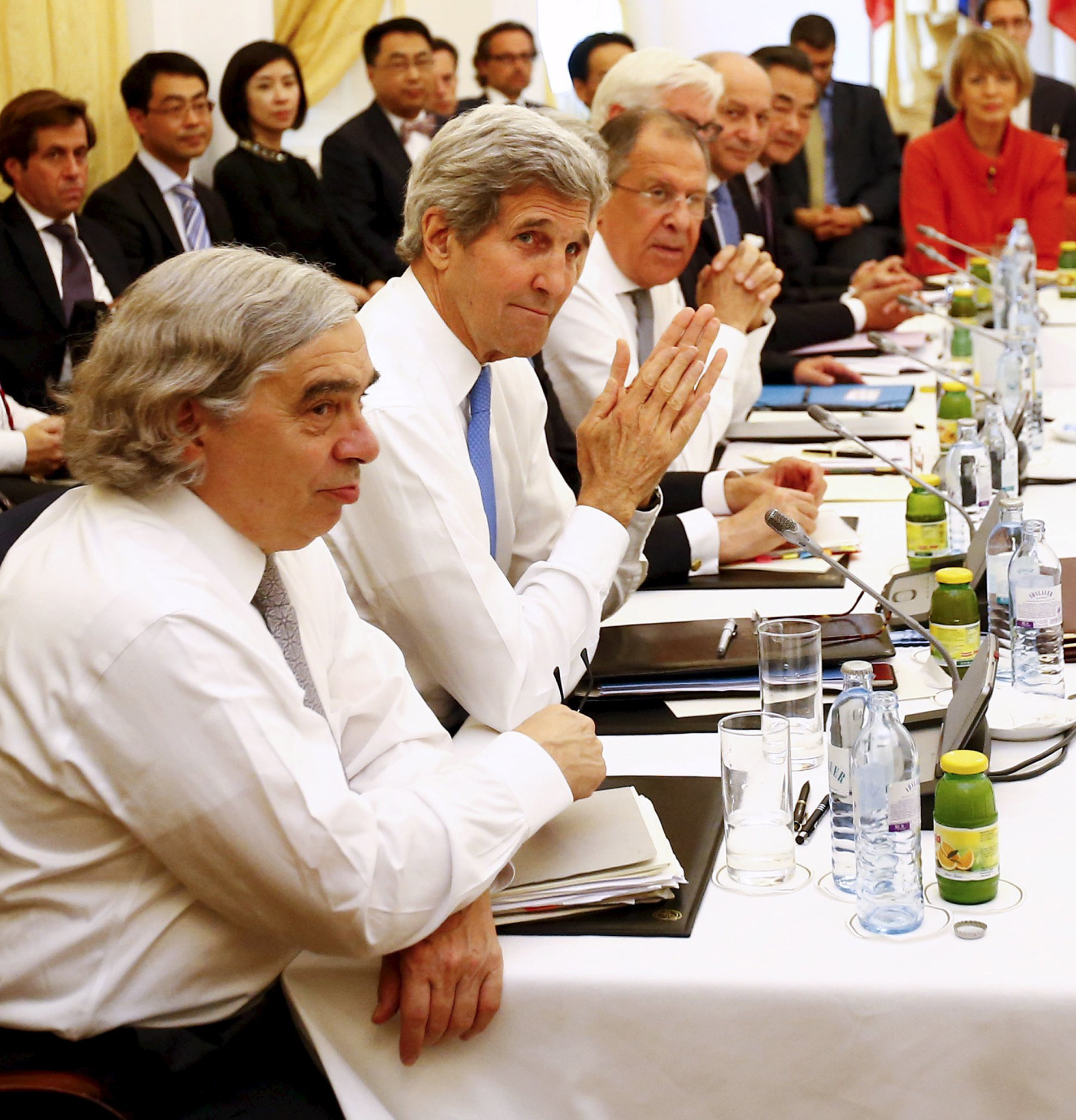Nuke deal remains elusive after deadline, but talks continue
Negotiators at the Iran nuclear talks pushed past their second deadline in a week on Tuesday, raising new questions about the ability of world powers to cut off all Iranian pathways to a bomb through diplomacy. The discussions, already in their 12th day, were prolonged until possibly Friday. Federica Mogherini, the European Union’s foreign policy chief, said the negotiations would continue despite hitting some “tense” moments, and the U.S. State Department declared the current interim nuclear arrangement with Iran extended through July 10. Top diplomats had spoken of deep differences remaining, and there was no public indication they had resolved disputes ranging from inspection rules on suspicious Iranian sites to limits on Tehran’s research and development of advanced nuclear technology.
[The parties] have never been closer to reaching a final agreement than we are now. … That’s an indication that these talks, at least for now, are worth continuing.
White House spokesman Josh Earnest
Meanwhile, the U.S. is in a tough spot. President Obama has expended significant political capital on finalizing an agreement that has prompted suspicion from Iran’s regional rival, Saudi Arabia; outright hostility from America’s closest Mideast ally, Israel; and deep ambivalence even among congressional Democrats. To ease their concerns, Obama and U.S. Secretary of State John Kerry have vowed to hold out for a “good deal” that verifiably keeps Iran at least a year away from a nuclear weapons capability for at least a decade. Current intelligence estimates put the Iranians only two to three months away from amassing enough material for a nuclear warhead, if they pursue such a course. The administration has repeatedly threatened to abandon negotiations if they prove fruitless.
My concern has been that there would be a rope-a-dope sort of performance by Iran, that they’ll just string out these negotiations.
No. 2 Democrat in the U.S. House, Rep. Steny Hoyer

Politics nuclear deal